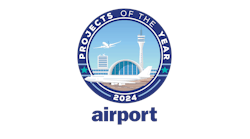Woolpert Contracted by TxDOT for Runway, Taxiway Maintenance at Addison Airport
Woolpert has been contracted by the Texas Department of Transportation Aviation Division to provide engineering design and construction phase services for rehabilitation of the runway and parallel taxiway system at Addison Airport (ADS). ADS is a general aviation reliever airport located in the Town of Addison, within the Dallas Platinum Corridor. It is close to major business centers and within 30 minutes of the region’s major sports facilities.
Woolpert is a leader in aviation engineering, design and geospatial services and has multiple offices in Texas. Woolpert Aviation Design Practice Leader Vivek Khanna said the firm will perform distress mapping to identify problem areas on Addison’s asphalt runway and taxiways to ascertain and apply the most effective remedy specific to the needs of the site.
“The most important aspect of this project is phasing it correctly so that the airport’s activities can continue unhampered with minimal downtime for its users,” Khanna said. “The airport is one of Addison’s most valuable economic assets. There are more than 650 aircraft based at the airport, and the site supports one of the biggest and busiest general aviation airports in the country.”
Khanna said the Dallas-Fort Worth region experiences a wide annual temperature range, with hot summers and varied precipitation. These elements beat down on the asphalt and cause its oxidation, which reduces the strength of its binder. This leads to cracking and the generation of foreign object debris (FOD), which can cause extensive damage to aircraft using the facility. Addressing surface cracks and applying the appropriate sealant will slow surface deterioration and increase the life of the pavement.
“A jet engine is like a vacuum cleaner; it sucks in the little rocks and other FOD on a runway,” Khanna said. “This debris can destroy a jet engine, which can cost upwards of $5 million, and can hit an aircraft’s propeller and disrupt the airflow pattern. By reducing FOD, you greatly increase passenger and aircraft safety, which is always our goal.”
This contract is now underway.






